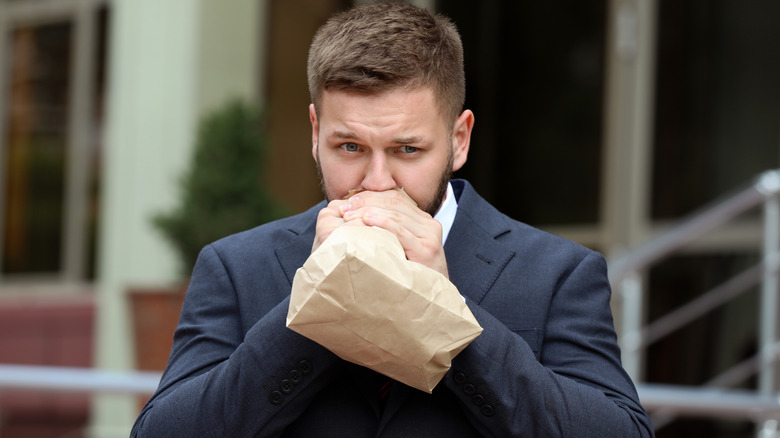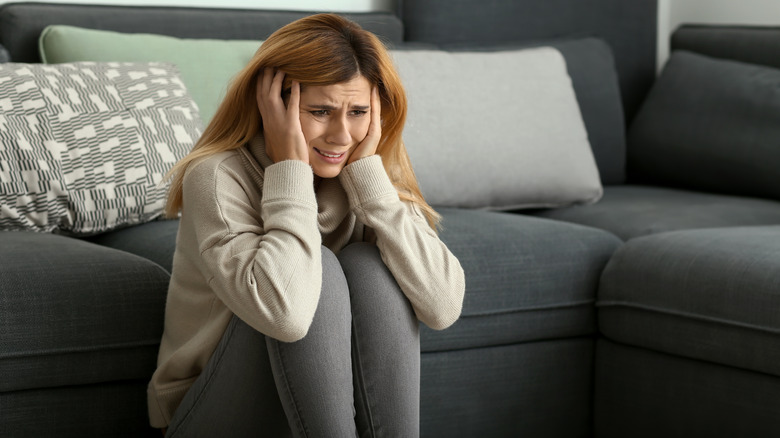What Happens To Your Body When You Hyperventilate
Hyperventilation, sometimes called overbreathing, is rapid or deep breathing (via Johns Hopkins Medicine). It is usually caused by anxiety and panic. When you hyperventilate, you may also experience lightheadedness or dizziness, shortness of breath, bloating, belching, weakness or confusion, numbness and a tingling sensation in your arms, chest pain, heart palpitations, and muscle spasms in the hands and feet. When you breathe normally, you inhale oxygen and exhale carbon dioxide. Hyperventilation may lead to low levels of carbon dioxide in the blood, which can cause these symptoms.
While hyperventilation often takes the form of a panic attack, there are some medical conditions that may cause overbreathing. These include bleeding, use of stimulants, drug overdose, pregnancy, severe pain, lung infection, a heart attack, head injuries, diabetic ketoacidosis, hyperventilation syndrome, and traveling to elevations over 6,000 feet (via Healthline). Hyperventilation can be serious, and you should seek treatment if you are having rapid breathing for the first time, it gets worse after trying to treat it at home, or if you are in pain, have a fever, or are bleeding (via MedlinePlus).
At-home treatments for hyperventilation
If you have seen a healthcare provider who has told you that your hyperventilation is due to anxiety, stress, or panic, there are some steps you can take at home to stop overbreathing. If you begin hyperventilating, the goal is to increase the levels of carbon dioxide in the blood. To do this, you need to take in less oxygen (via Johns Hopkins Medicine). Try breathing through pursed lips or cover your mouth and one nostril and breathe through your other nostril.
Getting reassurance from a family or friend can also be helpful. Having them say phrases like "you are doing fine" or "you are not going to die" can help calm you down. It is very important that the person speak in an even, relaxed tone.
In the long-term, it can be helpful to learn breathing exercises and relaxation techniques, such as progressive muscle relaxation or meditation, to help you keep calm in stressful situations. Exercising regularly may also help you keep stress under control and prevent hyperventilation. Finally, if you have been diagnosed with anxiety or panic, see a mental health professional to help you treat and better understand your condition.


